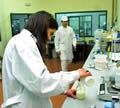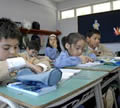- Reunión inter-regional de expertos sobre la medición de la cooperación Sur-Sur
- La SEGIB lanza newsletter con nuevas historias sobre cooperación sur-sur y triangular
- ¿Cuál es el valor de las universidades públicas hoy en Argentina?
- Una cumbre empresarial entre Corea del Sur y América Latina tendrá lugar esta semana
- Cuba en la Cooperación Sur-Sur: el camino para la integración
- Good Practices in South-South and Triangular Cooperation for Sustainable Development – Volume 4
- Global South-South Development Expo 2022 Concept Note
- Cooperación Sur-Sur en América Latina en tiempos de pandemia
- Valoración de la cooperación Sur-Sur en seis países seleccionados de América Latina y el Caribe: desafíos compartidos en la implementación de la Agenda 2030 para el Desarrollo Sostenible
- Desarrollo en transición: propuesta de concepto y medición para una cooperación renovada en América Latina y el Caribe
The Program of the United Nations for Environment (UNEP) and the European Union, continues the steps for the concretion of diverse actions.
Published by Prensa Latina, via Google News
Santiago de Cuba, April 10 (PL)- The Biological Corridor in the Caribbean (CBC) today goes towards the sustainability with the support of institutions from Cuba, the Dominican Republic and Haiti, the three nations involved in the project.
According to sources involved in that initiative, promoted by the Ministries of Environment in those countries, the Program of the United Nations for Environment (UNEP) and the European Union, continues the steps for the concretion of diverse actions.
The assumption of Jean Francois Thomas as new minister for that area in Haiti favors these steps, with a remarkable interest in impelling the CBC, and the signature of an understanding memorandum of the UNEP with the Jaragua Group, in the Dominican Republic.
Jaragua is a nongovernmental organization working for the sustainable handling of biodiversity in the Dominican Republic, particularly in the reserve of the biosphere Jaragua- Bahoruco- Enriquillo and in other zones in that country.
That joint effort with the international organization anticipates the fortification of the handling of that Dominican territory and of the Haitian reserve of Massif of Selle, with communitarian participation, and the creation of an effective platform of cooperation.
The memorandum is the first of others with national and international institutions that work in this surroundings and among which there are The Nature Conservancy, Welt Hunger Hilfe (German Land Action), the World-wide Bottom for the Conservation of the Nature and the Audubon Society.
The Biological Corridor in the Caribbean started in 2007 and must extend towards other islands and nations of the area sharing geographic and natural environmental and characteristic vulnerabilities.































